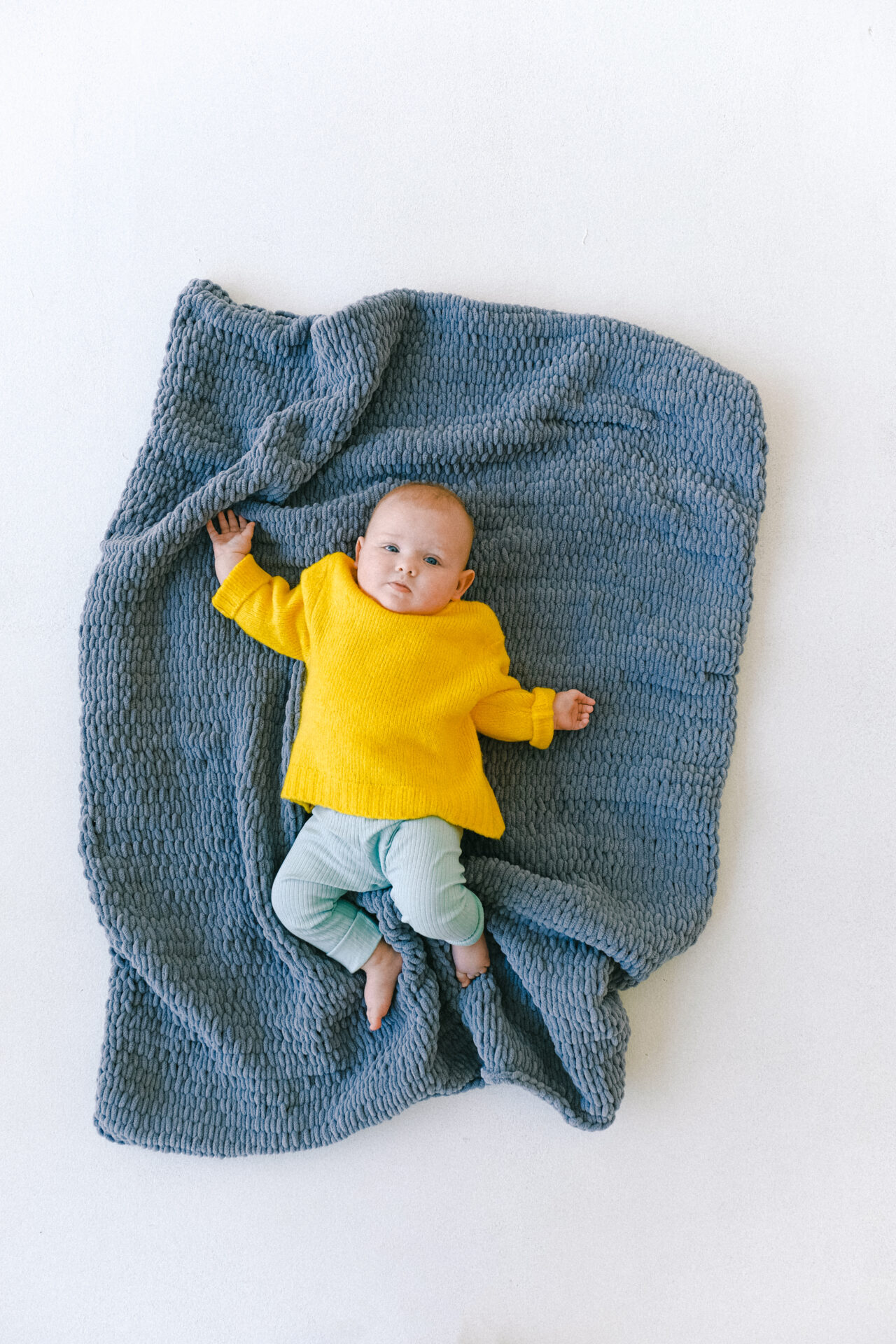Choosing the right childcare provider for a newborn can be a daunting task. Bringing a child into the world is a life-changing experience and parents naturally want the best for their new arrival. For parents who plan to work or go back to school, the decision to find the right childcare provider becomes even more pressing. There is so much to consider: safety, cost, hours, location, and the list goes on. Fortunately, there are some steps parents can take to ensure they make the right choice. In this article, we will discuss how to find the right childcare for a newborn, considering factors like budget, location, and safety.
Researching Your Options
As a parent, you want the best care for your newborn. Get advice from family members and friends who have gone through the process of finding the right childcare. Ask them to share their experiences and provide recommendations. Friends and family members can provide you with valuable insights that will help you make an informed decision.
Conduct Online Research
In addition to looking at family and friend recommendations, you can also conduct research online. Look up childcare services in your local area to get an idea of what is available. Read reviews and ratings to find the best childcare for your newborn. Consider the cost of each option and compare the facilities and services provided by each childcare.
Visit Childcare Facilities
A great way to get an accurate picture of the quality of each childcare service is to visit the location. Ask to tour the facilities and take note of the
Evaluating Potential Caregivers
When evaluating potential caregivers, it is important to meet with each candidate in person to ensure they are a good fit. An interview should cover topics such as the caregiver’s experience, possible references, expectations, communication style, and any other requirements. Questions can be tailored to the specific needs of the family. The interview is a great way to assess the compatibility between the caregiver and the newborn.
Examining the Caregiver’s Qualifications and References
When selecting a caregiver, it is important to consider their educational background and experience. Ask for official documents such as letters of reference, certifications, and written records of past experience. Speak to past employers or families that have used their services if possible. Requesting references will provide additional insight into the individual’s qualifications and trustworthiness.
Observing the Caregiver in Action
Before hiring a caregiver, it is a good idea to observe them in action. Ask the potential caregiver to bring a child they have previously cared for and have them interact with the newborn. Pay attention to their interactions, communication style, and level of engagement. This will give an indication of how the caregiver will interact with the newborn.
Making sure the Caregiver is the Right Fit
The relationship between the caregiver and the newborn is essential for the safety and wellbeing of the infant. It is important to ensure that the caregiver is the right fit for the family. It is important to trust the caregiver and feel comfortable with the arrangement. It is also beneficial to make sure the caregiver is familiar with the needs of a newborn.
Assessing the Caregiver’s Environment
It is also important to evaluate the environment where the caregiver will be working. Consider the safety and cleanliness of the space as well as any activities or outings they will take part in. A caregiver should always be attentive to the needs of the newborn and make sure they are in a safe and comfortable environment.
Considering Contractual Agreements
Before hiring a caregiver, it is important to review any contractual agreements and to be aware of any applicable state laws. Review any fees and payment schedules, understand the caregiver’s health insurance and other benefits, and be aware of the cancellation policy.
Choosing the right caregiver for a newborn can be a challenging task. Taking the time to evaluate potential caregivers and understanding their qualifications and experience are essential for ensuring the safety of the newborn. By following these steps, families can make an informed decision that is best for their family.
Cost and Payment Plan Considerations
When deciding on the right childcare for a newborn, one of the most important considerations is ensuring that the daycare costs are within your budget. Depending on the type of care arrangement, the cost of childcare can range from $50 to $1000 per month, making it essential to research the costs associated with different types of care arrangements. There may also be additional costs associated with the provision of meals, supplies and transportation. It’s important to take into account any additional costs and factor them into your budget.
Figuring Out Payment Plans
When determining childcare for a newborn, it’s important to research payment plan options. Daycare centers typically require the payment for care upfront or on the due date each month. Some daycare centers may also offer discounts or flexible payment plans, so it’s important to inquire about available options in order to optimize your budget. Additionally, some centers accept financial aid through state childcare programs, and it’s beneficial to consider this option if it’s available.
Weighing Payment Types
When selecting childcare for a newborn, it’s essential to consider the payment types accepted. Many daycare centers accept payment via credit, debit and cash. Some centers may also accept payment by electronic check, money order or even electronic funds transfer. It’s important to research the payment types accepted by each daycare provider in order to minimize the hassle of payment. Additionally, it’s important to know the payment policies for each daycare center prior to enrollment.
Examining Payment Terms
When researching childcare for a newborn, it’s important to consider payment terms. Each daycare provider has its own payment agreement, which includes a description of payment rules, late fees and cancellation policy. It’s important to read through the payment agreement in detail to ensure that it’s aligned with your childcare needs. It’s also important to inquire about any discounts or tuition fees that may be offered by the daycare provider.
Addressing Special Needs
It’s important to know your newborn’s specific needs when searching for the right childcare. If your little one has special needs, it’s essential they receive the proper care and attention. Parents can determine whether their infant is eligible for special services based on the child’s diagnosis, the severity of the condition, and the services defined by the state.
Accessing Resources When Choosing Childcare
When searching for childcare providers with expertise in caring for infants with special needs, parents can access resources such as the local early intervention program. Talk to a healthcare provider or family advocate to obtain guidance in selecting a suitable provider. They can also provide referrals to specialized childcare facilities and centers.
Questions to Ask Potential Caregivers
Once parents have identified suitable childcare providers, it’s important to ask the right questions. Does the caregiver have experience caring for infants with special needs? Are they familiar with your baby’s specific needs? Do they have any additional qualifications, certifications, or licenses? Does their facility have all the necessary equipment? How often are the caregivers supervised? Do they use a structured routine? Make sure to inquire about the caregiver’s experience, availability and safety practices.
Steps to Ensure a Successful Transition
When the right caregiver is found, parents should take the necessary steps to ensure their little one’s transition is successful. Let the caregiver know what the baby’s daily routine is like, who they want contacted in case of an emergency and any other special needs they may have. Start with a few hours of childcare first to ease the transition and understand how the baby will react to the new environment. This can help parents feel confident that their baby is receiving the best care.
Making the Final Decision
When evaluating the final options for your newborn’s childcare, it is important to consider several factors. Ask yourself some questions, such as: Are the facilities and staff experienced and qualified? Is the location convenient? Are the hours of operation compatible with your schedule? Is the cost affordable?
Read the reviews and ask other parents for input. Visit the facility with your baby, if possible. Talk to the staff. Do they genuinely seem to care about the children and their families? Some childcare centers even have an open-door policy, allowing parents to drop in whenever they like.
Weighing the Pros and Cons
Make a list of the pros and cons of each childcare option. Is the center accredited? Does it offer discounts for siblings or for parents who work for certain companies? Does the center partner with charitable organizations or local businesses? Is there a language or cultural emphasis? Will the center provide meals, snacks, or formula? Is there a playground or outdoor activities?
Trust Your Instincts
At the end of the day, it is important to trust your own instincts. The best childcare option for your family is one that you feel comfortable about and that you believe will offer the best quality of care for your newborn. Make an informed decision, ask the right questions, and take your time in making the final decision.
Making the Decision
When deciding who will provide childcare for your newborn, it is important to do your own research and visit your potential caretakers to check out any certifications they may have, observe their interactions with other children, and ask questions about any health and safety standards they follow. Additionally, it is important to make sure you are comfortable and develop a trusting relationship with the provider before entrusting them with your bundle of joy. Once you have gathered all the necessary information and evaluated the pros and cons of each option, you can choose the best caretaker for you and your child and rest assured that your baby will be in good hands.





Leave a reply